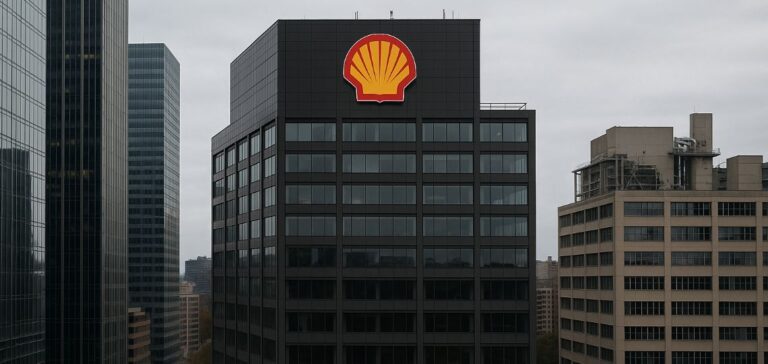British energy group Shell plc reported a net profit of $4.8bn for the first quarter of 2025, a 35% decline compared to the same period in 2024. The drop is primarily attributed to lower oil prices, but results still exceeded market forecasts, according to Agence France-Presse on May 2. Adjusted earnings, a key metric for investors that excludes exceptional items, amounted to $5.58bn, down 28% year-on-year.
Share buybacks and capital strategy
Despite less favourable market conditions, Shell confirmed the launch of a new $3.5bn share buyback programme over the next three months. This continues an uninterrupted streak of 14 consecutive quarters with buybacks exceeding $3bn. Total shareholder distributions over the past four quarters amounted to 45% of cash flow from operations (CFFO), in line with the 40% to 50% target range set out during the Capital Markets Day in March 2025.
Quarterly revenue stood at $70.2bn, a 6% year-on-year decline. The group’s net debt reached $41.5bn, reflecting the impact of the Pavilion Energy acquisition and associated financing from the sale of its Nigerian subsidiary SPDC (The Shell Petroleum Development Company of Nigeria Limited).
Asset reallocation and segment performance
Shell completed two major transactions during the quarter: the acquisition of Pavilion Energy, reinforcing its position in the liquefied natural gas (LNG) market, and the divestment of the Singapore Energy and Chemicals Park. The Integrated Gas segment posted adjusted earnings of $2.48bn, with liquefaction volumes slightly lower at 6.6 million tonnes.
The Upstream segment reported adjusted earnings of $2.34bn, steady compared to the previous quarter, while Marketing benefited from seasonal margins in lubricants to reach $900mn. The Chemicals and Products segment delivered $449mn despite a weak environment for chemical margins. Renewables & Energy Solutions posted a loss of $42mn, although electricity and gas sales volumes increased.
Cost reduction measures and competitive environment
Shell continues to pursue an optimisation plan targeting $5bn to $7bn in savings by 2028 compared to 2022. This plan includes reductions in structural costs through technologies such as artificial intelligence, as well as targeted job cuts. The original goal had been $2bn to $3bn in savings by the end of 2025.
Amid declining oil prices, which hovered around $60 per barrel in early May, Shell’s competitors also reported lower earnings. BP saw its net profit fall to $687mn in the first quarter, while TotalEnergies posted a profit of $3.9bn, down 33%. Quarterly results from Chevron and ExxonMobil were expected later on May 2.






















